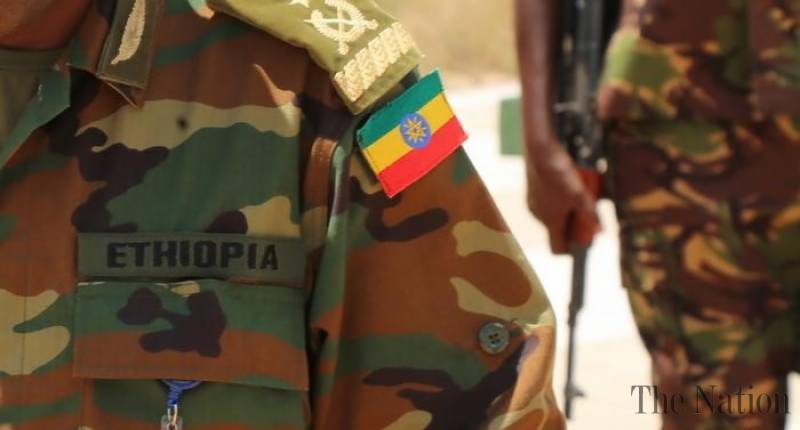A top European official has ruled out the possibility of the EU interfering in Ethiopia’s internal matters, local media reported Wednesday.
According to a report by Ethiopian broadcaster FANA, the assertion came from Janez Lenarcic, EU commissioner for crisis management, during a meeting with Demeke Mekonnen, Ethiopia’s deputy prime minister and foreign minister, in Brussels.
“The EU has no intention of interfering in Ethiopia’s domestic affairs,” the report quoted Lenarcic as saying, citing a statement by the deputy prime minister’s office.
The EU official also urged the Ethiopian government to pay due attention to the safety of civilians during its ongoing operation in Tigray, it added.
While Lenarcic’s own statement after the meeting did mention this second point, it said nothing about the EU’s views on whether the conflict is Ethiopia’s internal matter.
“The only solution lies in the urgent cessation of hostilities. Until this is not the case, the threat of serious destabilization of Ethiopia as well as the wider region remains,” read the statement.
“The EU considers Ethiopia as a key partner in Africa and wishes to see the country as a peaceful, democratic and prosperous place for all of its population.”
The official stressed that humanitarian workers must have unrestricted access “to all areas affected by fighting.”
“Any party in the conflict must protect civilians and ensure their safe and free movement in accordance with International Humanitarian Law,” Lenarcic said.
Heavy fighting has raged in Ethiopia’s northern Tigray region since Nov. 4, when Prime Minister Abiy Ahmed’s administration launched an offensive against the Tigray People’s Liberation Front (TPLF), saying the renegade group had attacked military installations.
Along with mounting casualties, the escalating conflict has displaced thousands in Tigray, with the UNHCR estimating that at least 40,000 Ethiopians have fled to neighboring Sudan so far.
After capturing key towns over recent days, Ethiopian forces have now encircled Tigray’s capital Mekelle and premier Abiy has given TPLF leaders a 72-hour ultimatum – ending Thursday – to surrender.
Ethiopian peacekeepers withdrawn from S.Sudan
United Nations Mission in South Sudan (UNMISS) said three Ethiopian peacekeepers have been withdrawn and repatriated back to Ethiopia.
"UNMISS is aware that three soldiers were repatriated by Ethiopia back to their country on Saturday. The Mission’s Human Rights Division is following up on their situation," the mission's spokesman, Kirk Kroeker, confirmed to Anadolu Agency on Thursday.
The three peacekeepers are from the Tigray ethnic group.
"Yes, we can confirm that they were Tigrayan," the spokesman said.
The UN said that Ethiopia is a strong supporter of the United Nations and its peacekeeping efforts. In South Sudan, there are three Ethiopian battalions, comprising around 2,000 personnel, who are assisting with protection and peacebuilding.
"As a Troop Contributing Country, Ethiopia is ultimately responsible for the conduct and movement of its troops.
"However, if the personnel is discriminated against because of their ethnicity or any other reason, this could involve a human rights violation under international law.
"In this regard, UNMISS has requested access to any soldier who might be in need of protection under international law," the mission said.
Ethiopia’s military is fighting battle-hardened troops in the northern Tigray region, threatening the stability of the entire Horn of Africa region.
The conflict is rooted in long-standing tension between the powerful regional party, Tigray People's Liberation Front (TPLF), and Ethiopia's central government.
When Ethiopian Prime Minister Abiy Ahmed postponed a national election due to coronavirus in June, tensions escalated between the two groups.
The TPLF sees the central government as illegitimate, arguing Abiy no longer has the mandate to lead the country.
The government accused the TPLF of attacking a military base to steal weapons, which the TPLF denied.
In response, Abiy ordered a military offensive, accusing the TPLF of treason.






